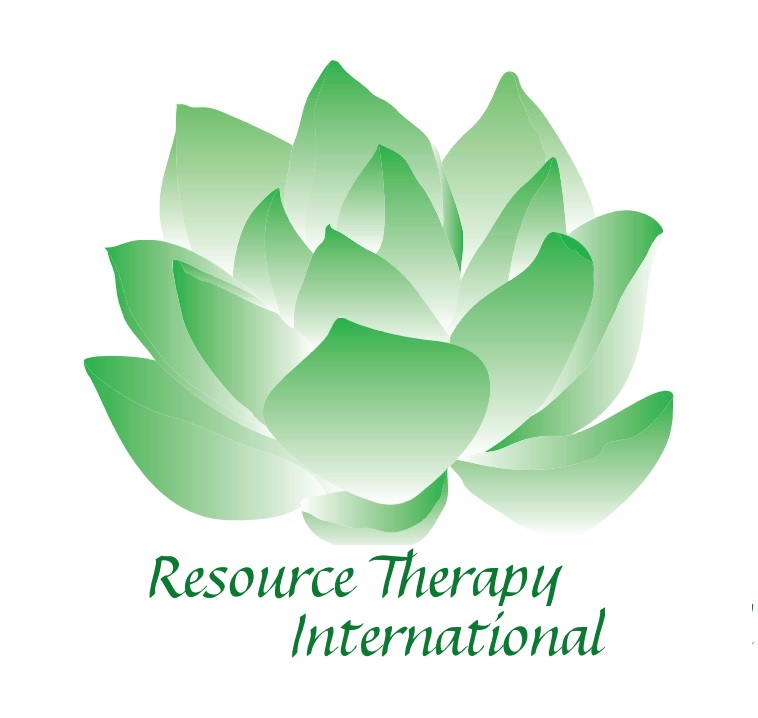Resource Therapy International (RTI) provides global standards for training, certification, and professional development in Resource Therapy. These guidelines ensure that training is delivered with integrity, consistency, and clinical excellence.
1. Requirements for Trainers
Who can train others in Resource Therapy?
Only Certified Resource Therapy Trainers are recognised and accredited by Resource Therapy International.
What are the requirements to become a Certified Trainer?
To be certified as a Resource Therapy Trainer, you must complete:
- Foundation Training in Resource Therapy
- Clinical Qualification Training in RT
- Advanced Clinical Training in RT
- Train the Trainer program
Additional requirements:
- Demonstrate clinical expertise, presentation skills, and professionalism to the satisfaction of the RTI Executive.
- Exemptions may be granted to highly experienced Resource Therapists at the discretion of the RTI Executive.
What if a student should not become a therapist?
If you have concerns about a student’s suitability, email the RTI Executive at admin@resourcetherapy.com.
What about other Parts Informed workshops?
Senior-level Trainers may offer RT informed Parts Therapy workshops to clinically qualified Resource Therapists who have completed the full 10-day program in consultation with the RTI Executive.
2. Training Schedule
Do I have to follow the training schedule?
Yes. All topics must be taught in alignment with Gordon Emmerson’s Learn Resource Therapy – Student Training Manual (Emmerson, 2015).
For a list of the Resource Therapy Days and topics to cover please click here.
Can I change the order of topics?
No. To maintain accreditation, topics must be taught in the designated sequence outlined in the Trainer’s Manual (Emmerson, 2014) and Student Training Manual (Emmerson, 2015). Trainers may adjust timing within a training day.
What topics must be covered each day of Clinical Training?
- Day 1 – Overview of Therapy
- Day 2 – Working with Conflicted States
- Day 3 – Diagnosis and Dissonant States
- Day 4 – Vaded in Confusion
- Day 5 – Vaded in Rejection or Fear
- Day 6 – Retro States & Vaded in Disappointment
- Day 7 – Resource State Mapping / Ethics
- Day 8 – Working with Pain & Somatic Presentations
- Day 9 – Separation Sieve / What Lies Within
- Day 10 – Anchoring with Dissonant State work
Source: Student Training Manual (Emmerson, 2015)
What practices are required each day?
- Day 1 – Vivify Specific, Bridging
- Day 2 – Conflicted State Negotiation
- Day 3 – Dissonant State work
- Day 4 – Vaded in Confusion (Changing Chairs Introject Action)
- Day 5 – Vaded in Rejection or Fear
- Day 6 – Retro State Negotiation
- Day 7 – Mapping
- Day 8 – Pain and Somatic Presentations
- Day 9 – Separation Sieve
- Day 10 – Anchoring & Dissonant State work
Source: Trainer’s Manual (Emmerson, 2014)
How should each training day be structured?
Foundation Training (2 days): Presentation → Demonstration → Practice (no supervision).
Clinical Training (10 days): Each day includes case presentations, supervision, presentations, demonstrations, and practice.
Source: Trainer’s Manual (Emmerson, 2014)
3. Training Material
Which materials can trainers use?
Trainers may use slides, handouts, and content from the Student Training Manual (Emmerson, 2015), Resource Therapy Primer. Optional daily activities and quiz questions are available in the Trainer’s Manual (Emmerson, 2014).
Can I include non-Resource Therapy content?
Yes, but additional time must be scheduled post-workshop. The 10-day RT curriculum is the minimum requirement.
Do I need to use the official handouts?
No. You may use your own, provided you cover all points on the Reference Topics Sheet.
4. Time Management
Can training be shorter if the group is small or quiet?
No. A minimum of 6 hours per training day is required. Trainers should utilize additional activities, extend quizzes, and offer creative exercises to ensure full engagement.
5. Absences
What if a student misses training?
Students cannot be certified if they miss more than half a day (Foundation) or a full day (Clinical). They may complete missed content later with another trainer. Disputes can be referred to the RTI Board.
6. Cultural Sensitivities
How should cultural differences be handled?
Be respectful and adapt examples and language for the cultural context. Cultural awareness is an essential part of ethical Resource Therapy training.
7. Who Can Be Trained?
Can students without a therapy background take part?
Yes, for personal growth or interest. However, they may not participate in practice sessions (observation only) and will not receive certification. Trainers must ensure certificates reflect local restrictions. Students remain responsible for working within their professional and ethical boundaries.
8. Self-Paced Training
Is self-paced training recognised?
Self-paced training is recognised as valid learning. However, certification requires supervised, interactive training (online or in person). Graduates of self-paced training may be considered for honorary certification if they contribute significant publications or research, at the discretion of the RTI Executive Committee.
References
- Emmerson, G. (2014). Resource Therapy Trainer’s Manual: For Resource Therapy Foundation Training and Resource Therapy Clinical Qualification Training. Old Golden Point Press. ISBN-10: 0992499526; ISBN-13: 9780992499525.
- Emmerson, G. (2015). Learn Resource Therapy: Clinical Qualification Student Training Manual. Old Golden Point Press. ISBN-10: 0992499534; ISBN-13: 9780992499532.
